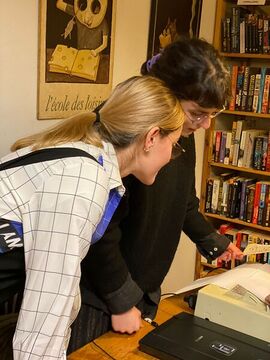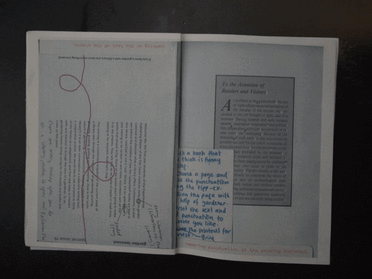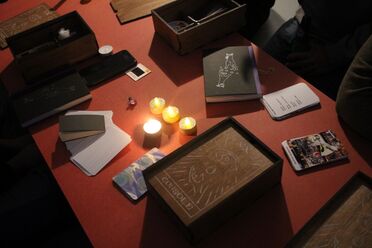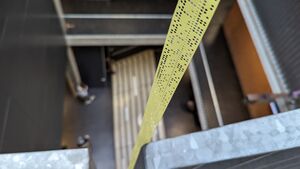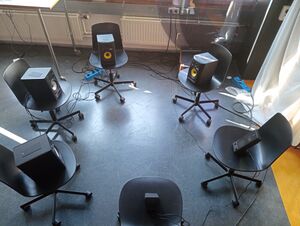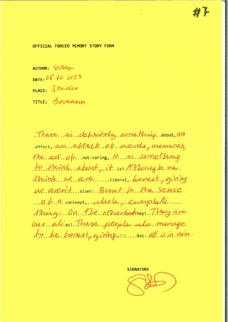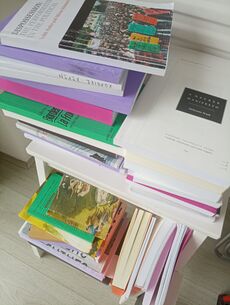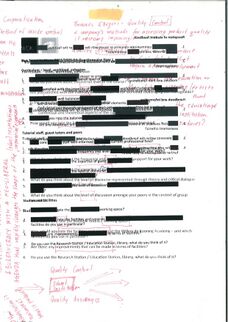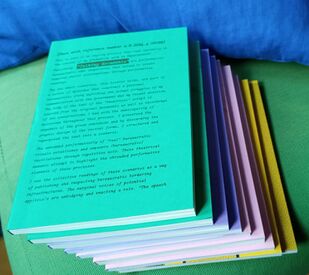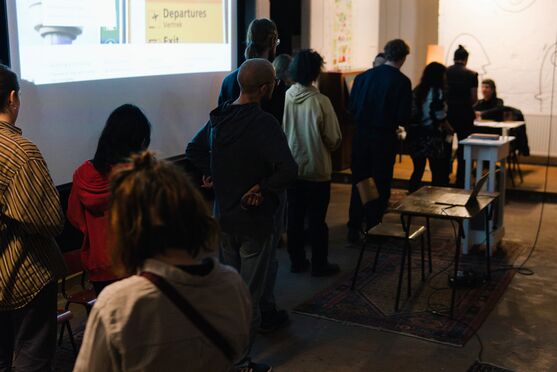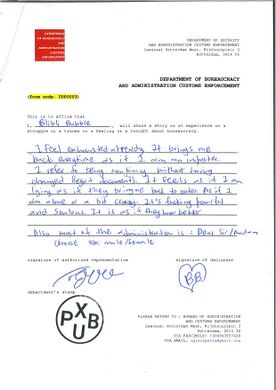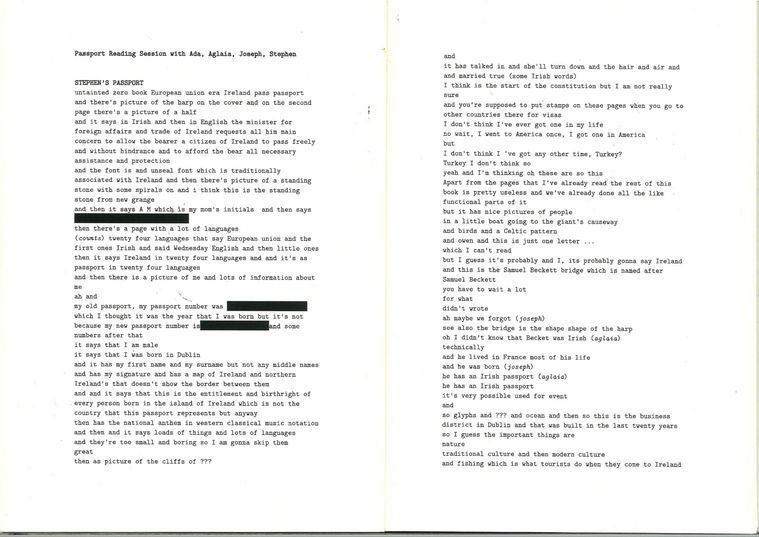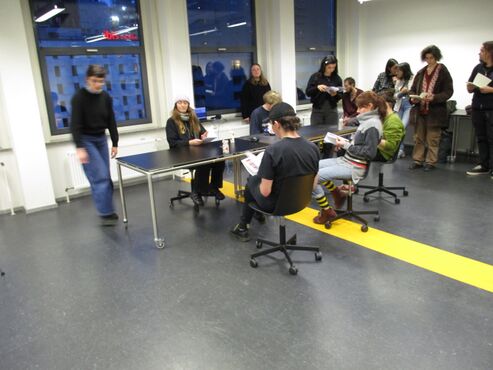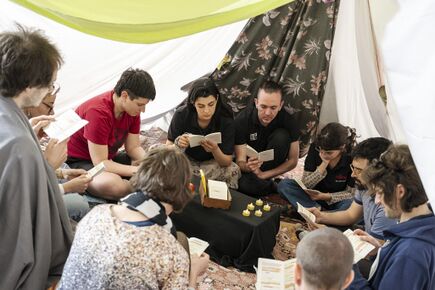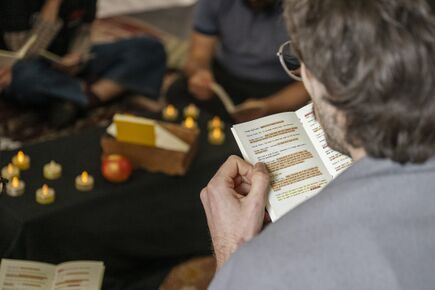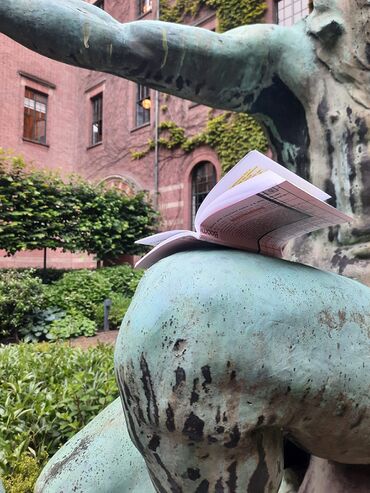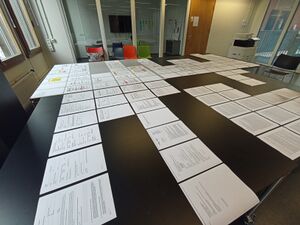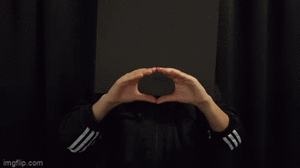User:Aglaia/Final assessment: Difference between revisions
No edit summary |
|||
| (16 intermediate revisions by 2 users not shown) | |||
| Line 3: | Line 3: | ||
font-size: 13px; | font-size: 13px; | ||
">17.06.2024 | ">17.06.2024 | ||
حراقة, ḥarrāga, ḥarrāg | |||
== <span style="color: white; font-family: monospace; text-decoration:none; background-color: red;">'''FIRST YEAR IN XPUB '''</span> == | == <span style="color: white; font-family: monospace; text-decoration:none; background-color: red;">'''FIRST YEAR IN XPUB '''</span> == | ||
| Line 42: | Line 41: | ||
[https://issue.xpub.nl/20/index.html Console] | [https://issue.xpub.nl/20/index.html Console] | ||
[[File:Magic box.jpg|thumb|magic box|372x372px]] | [[File:Magic box.jpg|thumb|magic box|372x372px]] | ||
During this | During this SI20 with Lydia Perreira and Artemis Gryllaki, we explored characteristics found both in rituals and games. How videogames and rituals circulate political, cultural and social values? Every-day rituals we performed before the Monday class. | ||
We looked at rituals and their overlap with video games as a way to explore "forbidden" or lost knowledge erased by oppressive systems and specifically we talked a lot around witch-hunting. I kept the word/concept of '''ritual''' as instrument in the struggle for the exercise of power. Organized by repetition, they (re)connect the individual to the collective, creating a vision towards a given perception of society. | We looked at rituals and their overlap with video games as a way to explore "forbidden" or lost knowledge erased by oppressive systems and specifically we talked a lot around witch-hunting. I kept the word/concept of '''ritual''' as instrument in the struggle for the exercise of power. Organized by repetition, they (re)connect the individual to the collective, creating a vision towards a given perception of society. | ||
| Line 50: | Line 49: | ||
=== <span style="color: white; font-family: monospace; text-decoration:none; background-color: red;">'''SI21 - TTY '''</span> === | === <span style="color: white; font-family: monospace; text-decoration:none; background-color: red;">'''SI21 - TTY '''</span> === | ||
[https://issue.xpub.nl/21/index.html TTY]<br>[[File:The teletypewriter tape .jpg|thumb|concrete poetry on punched tape]]During SI21 TTY we worked with Teletype Model 33. The teletype is the meeting point between typewriters and computer interfaces, a first automated translator of letters into bits. These machines used to be instruments of administrative workforce and a expressing tool for concrete poetry and literature. This emerging workforce, in a large scale made up of women and minorities who were until then excluded from most qualified jobs, used typewriters and administration aesthetics to express themselves, re-organize and underline structural inequalities. Really inspiring moments that I keep from this special issue are: | [https://issue.xpub.nl/21/index.html TTY]<br>[[File:The teletypewriter tape .jpg|thumb|concrete poetry on punched tape]]During SI21 TTY with guest tutor Martino Morandi, we worked with Teletype Model 33. The teletype is the meeting point between typewriters and computer interfaces, a first automated translator of letters into bits. These machines used to be instruments of administrative workforce and a expressing tool for concrete poetry and literature. This emerging workforce, in a large scale made up of women and minorities who were until then excluded from most qualified jobs, used typewriters and administration aesthetics to express themselves, re-organize and underline structural inequalities. Really inspiring moments that I keep from this special issue are:<br> | ||
- '''Concrete poetry''' release at the atrium of Wijnhaven building[[File:HEXALOGUE.jpg|thumb|hexalogue ]]- '''Wiki on Strike.''' What if Wiki was on strike? What would happen? A digital banner “STRIKE” at the main page of wiki and many comments hidden in the infrastructure of this crucial for the course tool. | - '''Concrete poetry''' release at the atrium of Wijnhaven building<br> | ||
- '''Gesture glossary''' , an investigation on what kind of different interpretations there will be on gestures of our memory. How a body language is documented, how it expands, how it is capable of creating or enhancing identities. To be an xpub means to speak/perform the xpub language? | [[File:HEXALOGUE.jpg|thumb|hexalogue ]] | ||
- '''Wiki on Strike.''' What if Wiki was on strike? What would happen? A digital banner “STRIKE” at the main page of wiki and many comments hidden in the infrastructure of this crucial for the course tool.<br> | |||
- '''Gesture glossary''' , an investigation on what kind of different interpretations there will be on gestures of our memory. How a body language is documented, how it expands, how it is capable of creating or enhancing identities. To be an xpub means to speak/perform the xpub language?<br> | |||
- '''Hexalogue''' a collective text like a dream written by seven people in a pad and performed. The reading moment was recorded and then split in 6 autonomous pieces of audio pieces and then a zine was created. The moment was also re-enacted in Constant, Brussels. | - '''Hexalogue''' a collective text like a dream written by seven people in a pad and performed. The reading moment was recorded and then split in 6 autonomous pieces of audio pieces and then a zine was created. The moment was also re-enacted in Constant, Brussels. | ||
| Line 67: | Line 68: | ||
=== <span style="color: white; font-family: monospace; text-decoration:none; background-color: green;">'''Research Framework'''</span> === | === <span style="color: white; font-family: monospace; text-decoration:none; background-color: green;">'''Research Framework'''</span> === | ||
This research appeared as a need to explore potential bureaucratic '''dramaturgies''' within the educational institution I was part as a student. I was curious about educational bureaucratic mechanisms being driven by smaller-scale paperwork struggles and peers’ narratives, stories and experiences. However, unexpected emergencies - due to my eviction on the 31st of January 2024 - placed centrally my personal struggles unfolded in parallel with the making period. I ended up conducting accidentally auto-ethnography. | This research appeared as a need to explore potential bureaucratic '''dramaturgies''' within the educational institution I was part as a student. I was curious about educational bureaucratic mechanisms being driven by smaller-scale paperwork struggles and peers’ narratives, stories and experiences. However, unexpected emergencies - due to my eviction on the 31st of January 2024 - placed centrally my personal struggles unfolded in parallel with the making period. I ended up conducting accidentally auto-ethnography. | ||
| Line 135: | Line 135: | ||
[how] | [how] | ||
The collective readings of these scenarios can be seen as an instant publishing method and as a communal tool of inspecting bureaucratic bordering infrastructures. These are some previous experiments and public performative readings in different (institutional) contexts, like WDKA, Art Meets Radical Openness Festival in Linz, the City Hall of Rotterdam where I invited people to perform the play together, like a tiny theater. | The collective readings of these scenarios can be seen as an '''instant publishing method and as a communal tool''' of inspecting bureaucratic bordering infrastructures. These are some previous experiments and public performative readings in different (institutional) contexts, like WDKA, Art Meets Radical Openness Festival in Linz, the City Hall of Rotterdam where I invited people to perform the play together, like a tiny theater. | ||
<br> | <br> | ||
------------------------------------- | ------------------------------------- | ||
| Line 198: | Line 198: | ||
I documented and recorded these public acts and I re-created a collectively voiced scenario. These audio pieces constitute a collection of different recordings and soundscapes of these public moments, a vocal archive. These traces of this past acts are meant to be published as an installation in the graduation exhibition of XPUB in 2024. | I documented and recorded these public acts and I re-created a collectively voiced scenario. These audio pieces constitute a collection of different recordings and soundscapes of these public moments, a vocal archive. These traces of this past acts are meant to be published as an installation in the graduation exhibition of XPUB in 2024. | ||
[ | [https://vulnerable-interfaces.xpub.nl/talking-documents talking documents]<br> | ||
[[File:Intro scenario.mp3|thumb|left|Act -1 Introduction ]]<br> | [[File:Intro scenario.mp3|thumb|left|Act -1 Introduction ]]<br> | ||
[[File:Act0 storyline.mp3|left|thumb|Act0 storyline]]<br> | [[File:Act0 storyline.mp3|left|thumb|Act0 storyline]]<br> | ||
| Line 225: | Line 225: | ||
<br> | <br> | ||
== <span style="color: white; font-family: monospace; text-decoration:none; background-color: red;">'''THA'''</span><span style="color: white; font-family: monospace; text-decoration:none; background-color: black;">'''NK'''</span><span style="color: white; font-family: monospace; text-decoration:none; background-color: green;">'''YOU'''</span> == | |||
[[File:Iloveu.gif | [[File:Iloveu.gif|thumb|300x300px|'''I would like to thank warmly Michael, Marloes, Joseph, Manetta, Steve, Leslie and the guest tutors Simon, Artemis, Lydia, Martino for generously giving their energy, knowledge and care <3''']] | ||
🍉 | |||
Latest revision as of 17:34, 23 June 2024
حراقة, ḥarrāga, ḥarrāg
FIRST YEAR IN XPUB
A house of broken dishes
In a cold, windy climate
Using candles
Inhabited by horses and birds
computer generated poem reference to the House of Dust, based on a work by Alison Knowles & James Tenney (1967)
- python and natural languages processing
- text adventure game with python
- clicker game with javascript
- Python script to scan a page from a book, apply OCR (optical character recognition) and print it on the dot matrix printer.
import os
print("starting the pruning process")
scanning = "sudo scanimage --resolution 300 --mode color -o image.png"
os.system(scanning)
os.system("tesseract image.png text.txt -l eng")
fantasyname = open("text.txt.txt" , "r")
fantasyname = fantasyname.readlines()
for line in fantasyname:
line = line.split(" ")
for l in line:
if l!="" or l != ['\n', '\r\n']:
print(l)
os.system("echo '"+l+"' > /dev/usb/lp0")
SI 19 - Garden Leeszaal
Garden LeeszaalGarden Leeszaal with guest tutor Simon Brown was crucial in diving into the structure of libraries as systems of producing knowledge and unpacking classification as a process that (un)names, distinguishes, excludes, displaces, organizes life. It was fruitful for me in order to start understanding the notion of infra-structure. Libraries as complex social infrastructures. From the library to the section to the shelf to the book to the page to the text. The zooming in and zooming out process. The library as a plain text.
SI20 - Console
During this SI20 with Lydia Perreira and Artemis Gryllaki, we explored characteristics found both in rituals and games. How videogames and rituals circulate political, cultural and social values? Every-day rituals we performed before the Monday class.
We looked at rituals and their overlap with video games as a way to explore "forbidden" or lost knowledge erased by oppressive systems and specifically we talked a lot around witch-hunting. I kept the word/concept of ritual as instrument in the struggle for the exercise of power. Organized by repetition, they (re)connect the individual to the collective, creating a vision towards a given perception of society.
I really enjoyed the readings and the contexturealisation of this trimester’s work. In general throughout these two years, I feel really grateful for all these amazing texts that we read as well asthe ways we re-approached collective reading,writing, annotating. I used to feel really shy writing together and especially in english. This thesis is the first long “serious” text that I wrote in english.
SI21 - TTY
TTYDuring SI21 TTY with guest tutor Martino Morandi, we worked with Teletype Model 33. The teletype is the meeting point between typewriters and computer interfaces, a first automated translator of letters into bits. These machines used to be instruments of administrative workforce and a expressing tool for concrete poetry and literature. This emerging workforce, in a large scale made up of women and minorities who were until then excluded from most qualified jobs, used typewriters and administration aesthetics to express themselves, re-organize and underline structural inequalities. Really inspiring moments that I keep from this special issue are:
- Concrete poetry release at the atrium of Wijnhaven building
- Wiki on Strike. What if Wiki was on strike? What would happen? A digital banner “STRIKE” at the main page of wiki and many comments hidden in the infrastructure of this crucial for the course tool.
- Gesture glossary , an investigation on what kind of different interpretations there will be on gestures of our memory. How a body language is documented, how it expands, how it is capable of creating or enhancing identities. To be an xpub means to speak/perform the xpub language?
- Hexalogue a collective text like a dream written by seven people in a pad and performed. The reading moment was recorded and then split in 6 autonomous pieces of audio pieces and then a zine was created. The moment was also re-enacted in Constant, Brussels.
Methods with Steve-Project that may or may not be made
Forced Memory Story formDuring the last trimester I started developing bureaucratic forms as interface of potential personal stories. Teletype was a starting point through which thinking on the structure of a document. This was an every-day ritual for a couple of months established in the context of the 'project that may or may not be made'. A tiny website generated randomly these bureaucratic forms and my classmates and I had to fill them at the end of each class. The forced memory story forms is a writing interface to archive loosely and poetically ourselves.
SECOND YEAR IN XPUB
Research Framework
This research appeared as a need to explore potential bureaucratic dramaturgies within the educational institution I was part as a student. I was curious about educational bureaucratic mechanisms being driven by smaller-scale paperwork struggles and peers’ narratives, stories and experiences. However, unexpected emergencies - due to my eviction on the 31st of January 2024 - placed centrally my personal struggles unfolded in parallel with the making period. I ended up conducting accidentally auto-ethnography.
As I moved to the Netherlands I started more actively perceiving bureaucracy as another multi-layered border. I was wondering how this situation is shifted and transformed moving towards the European North. What is the role of bureaucracy and how it could be perceived as a mechanism of repulsion for some bodies - a camouflaged border?
Thesis: Performing the Bureaucratic (Border)lines
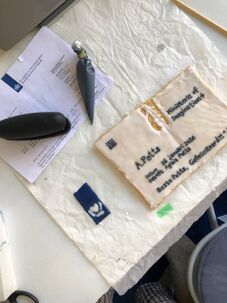
In the first chapter, I touch the concept of borders in relation to migration. I begin with a personal inspection and comprehension of material borders as entities. Alongside, I interweave in the text the concept of hospitality as a cultural attitude towards 'strangers' from the state’s perspective. Conditional and unconditional. How the document I hold in my hands reflects positions on the government’s conditional hospitality and what constraints it dictates.
In the second chapter, I unpack bureaucracy and focus on its bordering function. From migration ghost bureaucracies to the educational bureaucracies of my surroundings to even smaller components of this apparatus. I end up analyzing the document as a unit within this complex network. Through the "interrogation" of the form as an artifact are emerging issues related to language, graphic design and transparency, universality, and underlying violence.
In the third and last chapter, I bridge the written text with the ongoing project that runs simultaneously as part of my graduation work in Experimental Publishing, where I mainly speak through my prototypes.
To change the material artifacts is to transform the context and circumstances for interacting with the words, which inevitably change the meaning of the word itself. This transformation of meaning is especially possible when the words interact with the inscription technologies that produce them” (Hayles, 2002).
Project: Talking Documents
[what][why]
Talking Documents are performative bureaucratic text inspections that intend to create temporal public interventions through performative readings. I utilized the paperwork interface of my smaller-scale bureaucratic story in order to unravel and foreground questions related to the role of bureaucracy as less material border and as a regulatory mechanism reflecting narratives, ideologies, policies.
The transformation of the materiality of a document into a scenario to be enacted collectively in public aims to examine these artifacts and highlight the shrouded performative elements of these processes.The marginal voices of potential applicants are embodying and enacting a role. “The speech does not only describe but brings things into existence”(Austin, 1975). My intention was to stretch the limits of dramaturgical speech through vocalizing a document and turn individual administrative cases into public ones. How do the inscribed words in the documents are not descriptive but on the contrary “are instrumentalized in getting things done” (Butler,1997). Words as active agents. Bodies as low-tech “human microphones”.I imagine the theatrical play as a “human microphone”, a low-tech amplification device. A group of people performs the bureaucratic scenario in chorus, out loud, in the corridor of the school’s building, in the main hall, at the square right across, outside of the municipality building. The term is borrowed from the protests of the Occupy Wall Street Movement in 2011. People were gathered around the speaker repeating what the speaker was saying in order to ensure that everyone could hear the announcements during large assemblies. Human bodies became a hack in order to replace the forbidden technology. In New York it is required to ask for permission from authorities to use “amplified sound” in public space
The scenario
[how]
Central element of this project is a seven-act scenario that construct my personal paperwork story
The body of the text of the “theatrical” script is sourced from the original documents, email threads as well as recordings of the conversations with the municipality of Rotterdam I documented and archived throughout this period. I preserved the sequence of the given sentences and by discarding the graphic design of the initial forms, I structured and repurposed the text into a playable scenario.
INDEX
ACT 0: Storyline
ACT 1: Postal address application
ACT 2: Call with municipality about the rejection of my application
ACT 3: Objection letter
ACT 4: De-registration question - communication with the University
ACT 5: Communication with the agency for my deposit
ACT 6: Departure from the Netherlands application form
ACT 7: Confirmation of de-registration application
APPENDIX: Passport Reading Session with Ada, Aglaia, Joseph, Stephen
Talking Documents in Public
[how]
The collective readings of these scenarios can be seen as an instant publishing method and as a communal tool of inspecting bureaucratic bordering infrastructures. These are some previous experiments and public performative readings in different (institutional) contexts, like WDKA, Art Meets Radical Openness Festival in Linz, the City Hall of Rotterdam where I invited people to perform the play together, like a tiny theater.
[Title]: “Department of Bureaucracy and Administration Customs Enforcement”
[When]: November 2023
[Where]: Leeszaal
[Who]: XPUB peers, tutors, friends, alumni
[Description]:
During the first public moment at Leeszaal, I decided to embody and enact the traditional role of a bureaucrat in a graphic and possibly absurd way performing a small “theatrical play”. I prepared a 3-page and a 1-page document incorporating bureaucratic-form aesthetics and requesting applicants’ fake data and their answers for questions related to educational bureaucracy. People receiving an applicant number at the entrance of Leeszaal, queuing to collect their documents from the administration “office”, filling forms, waiting, receiving stamps, giving fingerprints and signing, waiting again were the main components of this act.
I was thinking of queues as a spatial oppressive tool used often by (bureaucratic) authorities. The naturalized image of bodies-in-a-line waiting for “something” to happen at “some point” under the public gaze in an efficiently defined area. Waiting can be considered as a dramaturgical means embedded in bureaucratic procedures that camouflage power relations through the manipulation of people’s time.
[Title]: “Passport Reading Session”
[When]: January 2024
[Where]: XML – XPUB studio
[Who]: Ada, Aglaia, Stephen, Joseph
[Description]:
This prototype is a collective passport reading session. I asked my classmates to bring their passports or IDs and sitting in a circular set up we attempted to “scan” our documents. Every contributor took some time to browse, annotate verbally, interpret, understand, analyze, vocalize their thoughts on these artifacts, approaching them from various perspectives. The three passports and one ID card were all coming from European countries.
"so the object here is like not by random it comes from the history of nation-states and how nation-states and nationalities created like a form of identity so nation state is actually a recent invention that came into existence over the last two hundred fifty years in the form as we know it nowadays in the form of democratic capitalism before like monarchies and so on and each citizen of such a nation state got also kind of a particular identity" , J. says about their ID
[Title]: “Postal Address Application Scenario"
[When]: February 2024
[Where]: Room in Wijnhaven Building, 4th floor
[Who]: XPUB 1,2,3, tutors, Leslie
[Description]:
This scenario is the first part of a series of small episodes that construct a personal bureaucratic story . The main actors were two bureaucrats vocalizing the questions addressed in the form, in turns and sometimes speaking simultaneously like a choir, three applicants answering the questions similarly while a narrator mainly provided the audience with the context and the storyline constructing the scenery of the different scenes. The main documentation media of the act were a camera on a tripod, a recorder in the middle of the table and myself reconstructing the memory of the re-enactement at that present - 6 days later.
[Title]: “Talking Documents”
[When]: May 2024
[Where]: Art Meets Radical Openness Festival Linz, Austria
[Who]: XPUB, participants and visitors of the festival
[Description]:
This session happened inside the tent that we built in the context of our performance
Turning Off The Internet at AMRO. Around 12 people took part. We read the Act2 "Call with the Municipality" and Act3 "Objection Letter". The session was recorded with a zoom recorder.
[Title]: “Talking Documents”
[When]: May 2024
[Where]: City Hall Rotterdam
[Who]: XPUB, and XPUB friends
[Description]:
One month ago I send tiny invitations to some peers and friends and 11 people gathered at 20:00 in the evening at the front entrance of the Gemeente to perform three acts of the story. Act2 "Call with the municipality of Rotterdam after the rejection of y application ", Act5 "Asking for my deposit - communication with the agency", Act 6 "De-registration from the Netherlands Application". We eventually performed the reading at the garden of the City Hall cause the main entrance was quite noisy because of the traffic jam. Some fancy dressed people were watching from distance but nobody interrupted our session. It lasted around 25'. We recorded using two zoom recorders.
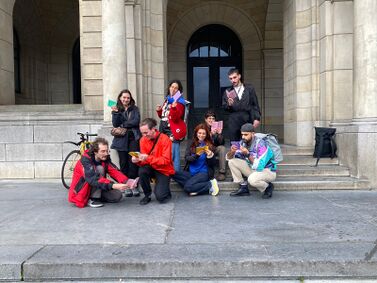
The tiny website that holds the vocal archive of the public moments
I documented and recorded these public acts and I re-created a collectively voiced scenario. These audio pieces constitute a collection of different recordings and soundscapes of these public moments, a vocal archive. These traces of this past acts are meant to be published as an installation in the graduation exhibition of XPUB in 2024.
talking documents
File:Intro scenario.mp3
File:Act0 storyline.mp3
File:Act1 postal-address.mp3
File:Act2 call.mp3
File:Act3 objection.mp3
File:Act4 uni-question-(deleted scene).mp3
File:Act5 deposit.mp3
File:Act6-departure-form.mp3
File:Act7 confirmation-deregistration.mp3
File:Appendix passport.mp3
Graduation Show Plans
-production of the collective publication "Vulnerable Interfaces" 200-copies-edition
-measuring the actual square meters of my documents and the scenario roughly 7.48 m2
-exhibition 2 set of headphones reproducing the 7-act-play, the vocal archive
-one 10’-15’ performance where I plan to curate a new scenario of documents. The new script will be distributed to the visitors and perform it all together at the event day.
THANKYOU
🍉

